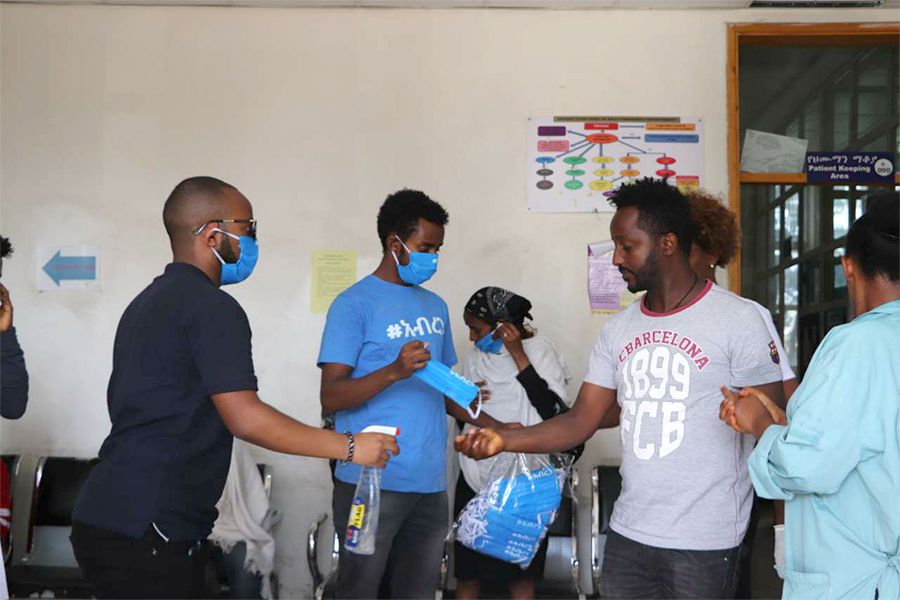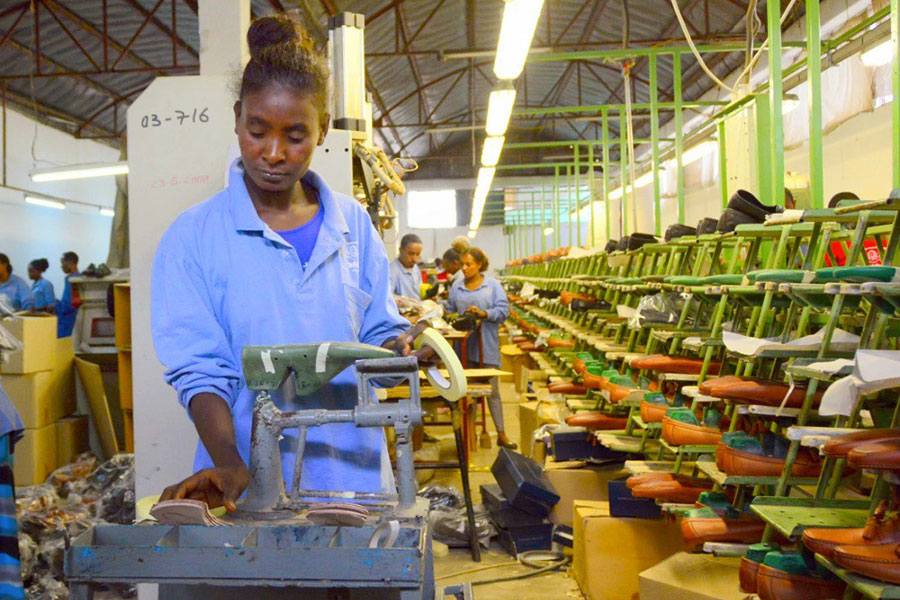
Nov 18 , 2023
By BERSABEH GEBRE ( FORTUNE STAFF WRITER )
The decree for the entry and exit of 48 technology products in the country was drafted by Ethiopia's premier cybersecurity institution, the Information Network Security Administration (INSA). It has reached the standing committee of Human Resource & Technology Affairs chaired by Negeri Lencho (PhD), while discussions between the officials were unveiled last week at Parliament.
The evolution of technology and the need to enhance the inspection capacities of the Administration were cited as the reasons for the proposed bill. It is part of the development to align with the goals of digitising Ethiopia put forth by the federal government.
Tigist Hamid, deputy head of INSA laid out the reasons for the limitation on the number of products slated for regulation. She reasoned that while inspection is necessary, specific permits will be granted to those engaged in innovation.
"We can't label all technology as a threat to national security," she said.
Tigist acknowledged difficulties in finding documentation to refer to experiences of other countries due to the confidentiality of intelligence agencies' documents. Officials have finally opted to collaborate with relevant stakeholders in Ethiopia to formulate the draft.
Following the comments of standing committee members, the exact list of items to be categorised as either prohibited or restricted is set for determination. While products dubbed restricted may be entered through the issuance of a proper security clearance permit, those dubbed prohibited will be outright banned from entry or use.
Million Hailemichael represented the Ethiopian Communication Authority (ECA) at the session. He enquired about the benchmark for determining which products fall into the two categories.
"It's unclear what the standards are," he noted.
Issuance of security permits and means of import or export on the restricted items will be carried out after inspection which will occur whether or not it was conducted in the source country, according to Tigist.
Alemayehu Getachew, a public relations official from the Ministry of Tourism, indicated that some tourists might come into the country unaware of the prohibitions. He requested that a particular location for temporary safekeeping should be instilled instead of appropriation.
The Deputy Head of INSA indicated that an online service to enhance the capacity of inspection experts who will work with the Ethiopian Customs Commission has been developed to evaluate items brought by tourists.
"We will work to disseminate the information widely," she said.
There was no proper legal framework to assess or evaluate the threat levels of technology products that entered the country.
Abdisa Lema, who heads the Geospatial Institutes and Space Sciences, emphasised the need to ascribe proper meaning to the term "technology products" as satellites, sensors and drones constantly enter the country.
"We rank 125th on the innovation index," he said, "regulation should not further trim our capacity."
Abdisa further noted the tediousness of requesting a special permit for every technology item entering the country under their institute.
Lack of clarity over the subject was echoed by Tariku Demise, chief technology officer of Ethio telecom. He insisted on the importance of details in the inspection procedure and whether priority was given over hardware and software products.
The evolution of artificial intelligence and rising multipolarity has resulted in countries like Nepal banning the social media site TikTok last week. Other countries like the US restricted the manufacturing of 'sensitive technology' in competitive rival China starting in August.
Federal Police Commission and the Defence Ministry are exempted from inspection due to the laws that allow for secrecy in their procurement process. INSA merely provides technical assistance when required.
Imprisonments of up to three years are proposed in the bill to discourage people from attempting to bring items that are prohibited into the country.
More decisive penalties were requested by attendees such as Hana Teshome, legal head of the Ethiopian Artificial Intelligence Institute. She indicated the need to establish an independent hearing body that caters to complaints arising during inspection.
A study in July by the Massachusetts Institute of Technology (MIT) reveals the need to calibrate establishing guardrails around the evolution of technology and the necessity to spur innovation and development.
Information technology experts indicate that mandatory inspection of products like cameras or contemporary gadgets does little to protect against cyber threats as more ominous items exist.
Founder of Anku ICT & Technology Consultant, Yosef Anku, emphasised the need to inspect items like servers or components of data centres rigorously. At the same time, he finds a blanket probe into all tech items to be tedious.
"Targetted inspection is essential," Yosef told Fortune.
PUBLISHED ON
Nov 18,2023 [ VOL
24 , NO
1229]

Fortune News | Aug 16,2020

Radar | May 20,2023

Fortune News | Aug 12,2023

Covid-19 | Mar 29,2020

Radar | Aug 21,2023


Fortune News | Oct 24,2020

Commentaries | Mar 05,2022

Fortune News | May 28,2022

Fortune News | Feb 18,2023

Dec 22 , 2024 . By TIZITA SHEWAFERAW
Charged with transforming colossal state-owned enterprises into modern and competitiv...

Aug 18 , 2024 . By AKSAH ITALO
Although predictable Yonas Zerihun's job in the ride-hailing service is not immune to...

Jul 28 , 2024 . By TIZITA SHEWAFERAW
Unhabitual, perhaps too many, Samuel Gebreyohannes, 38, used to occasionally enjoy a couple of beers at breakfast. However, he recently swit...

Jul 13 , 2024 . By AKSAH ITALO
Investors who rely on tractors, trucks, and field vehicles for commuting, transporting commodities, and f...

Jun 28 , 2025
Meseret Damtie, the assertive auditor general, has never been shy about naming names...

Jun 21 , 2025
A well-worn adage says, “Budget is not destiny, but it is direction.” Examining t...

Jun 14 , 2025
Yet again, the Horn of Africa is bracing for trouble. A region already frayed by wars...

Jun 7 , 2025
Few promises shine brighter in Addis Abeba than the pledge of a roof for every family...